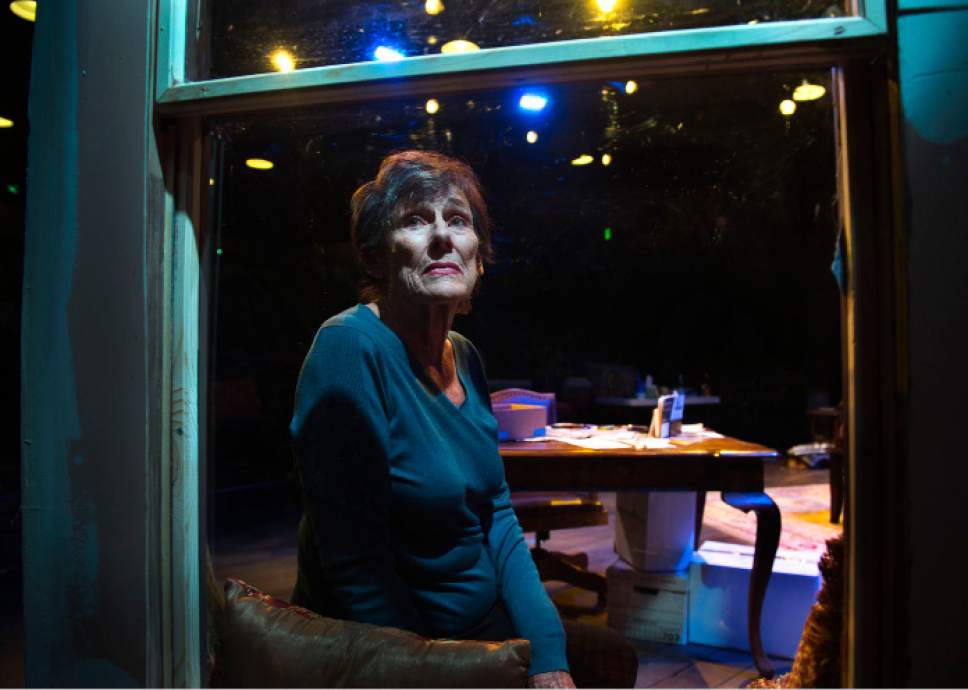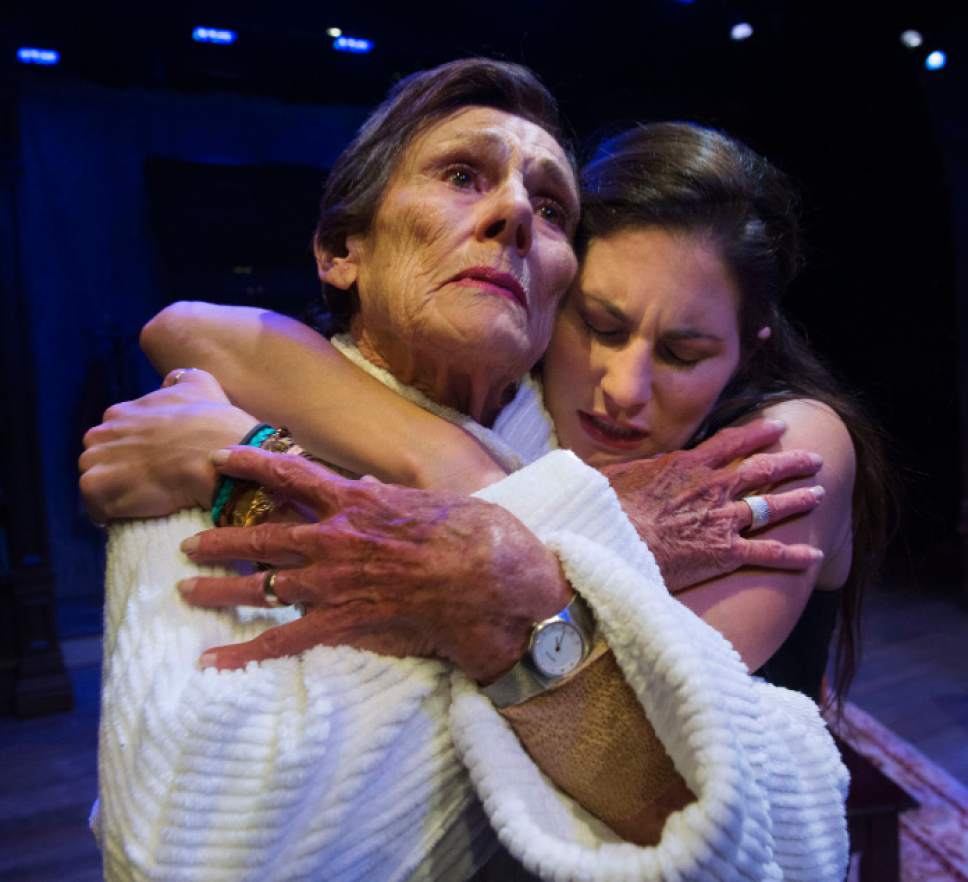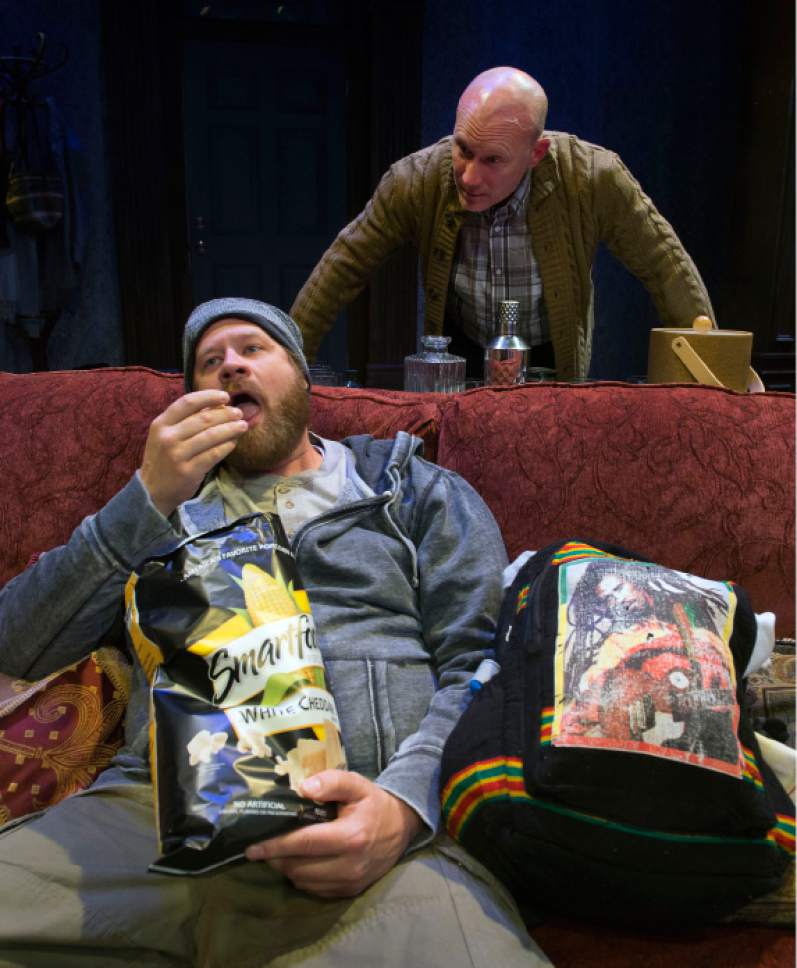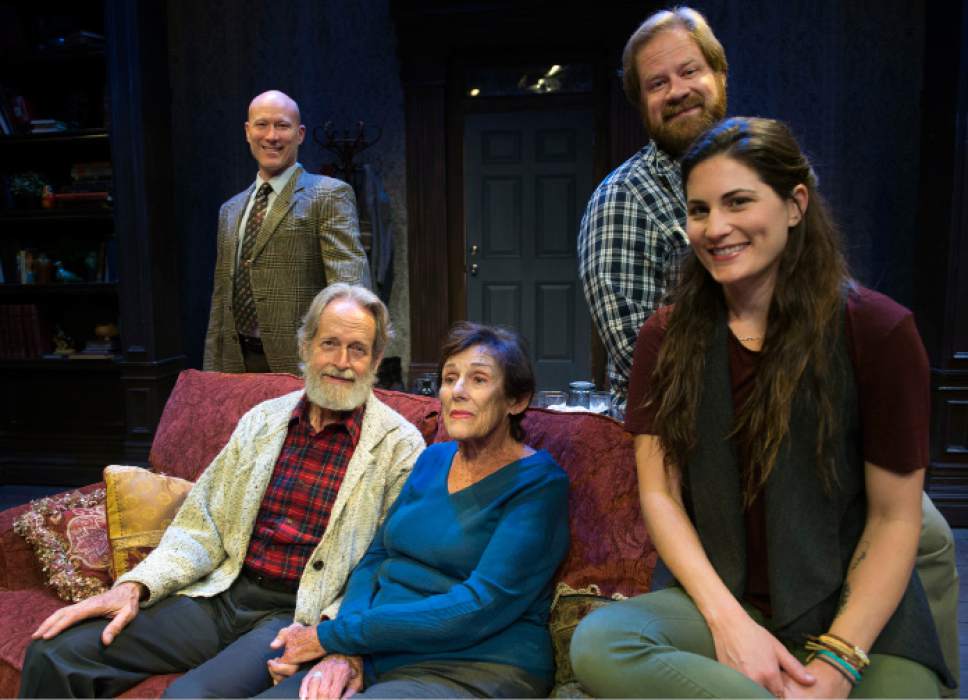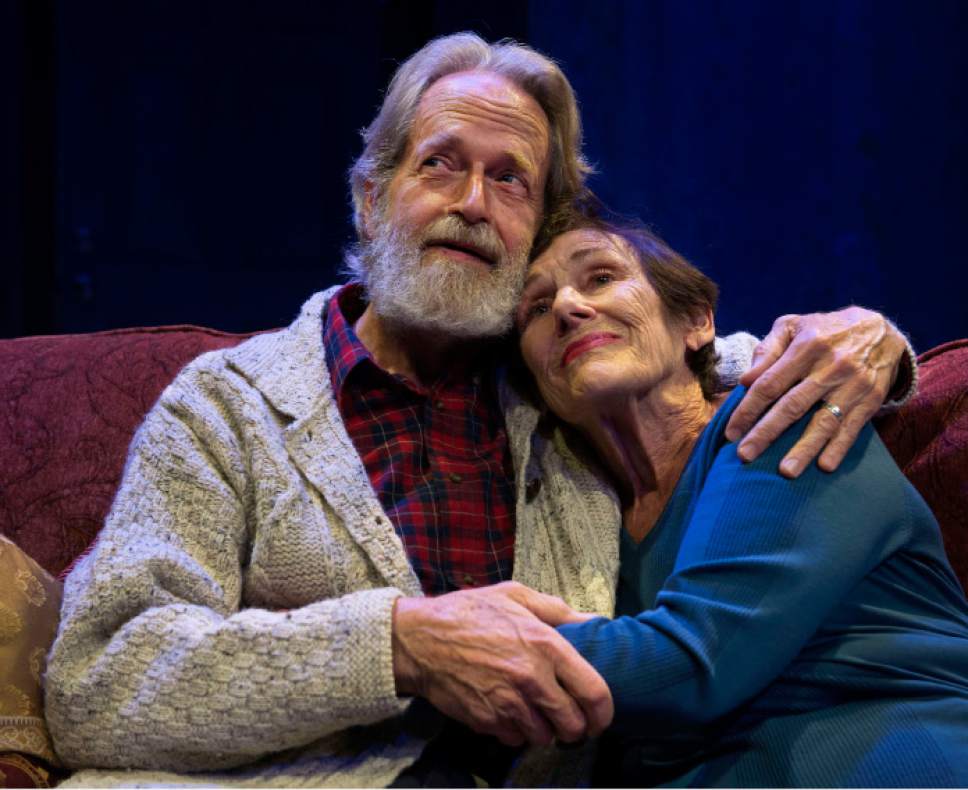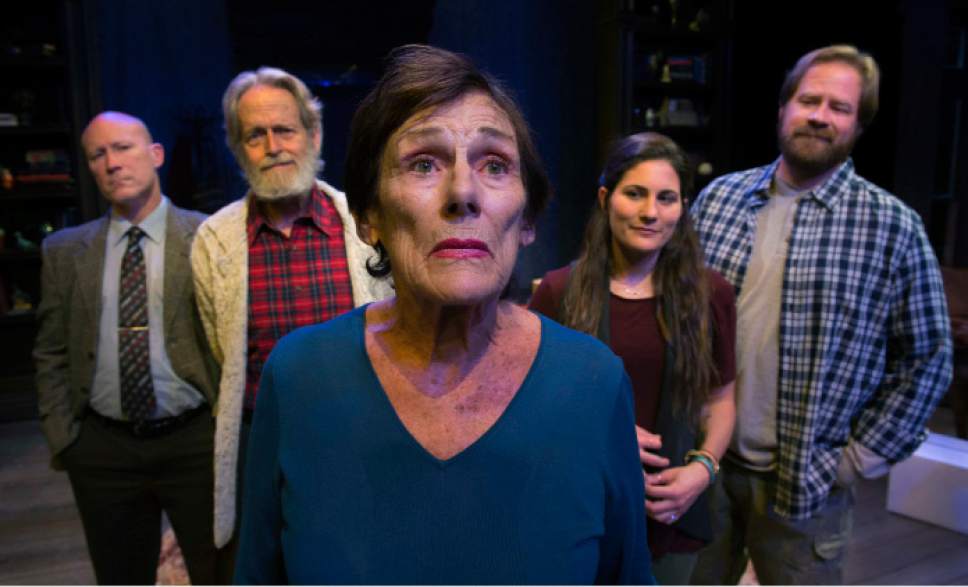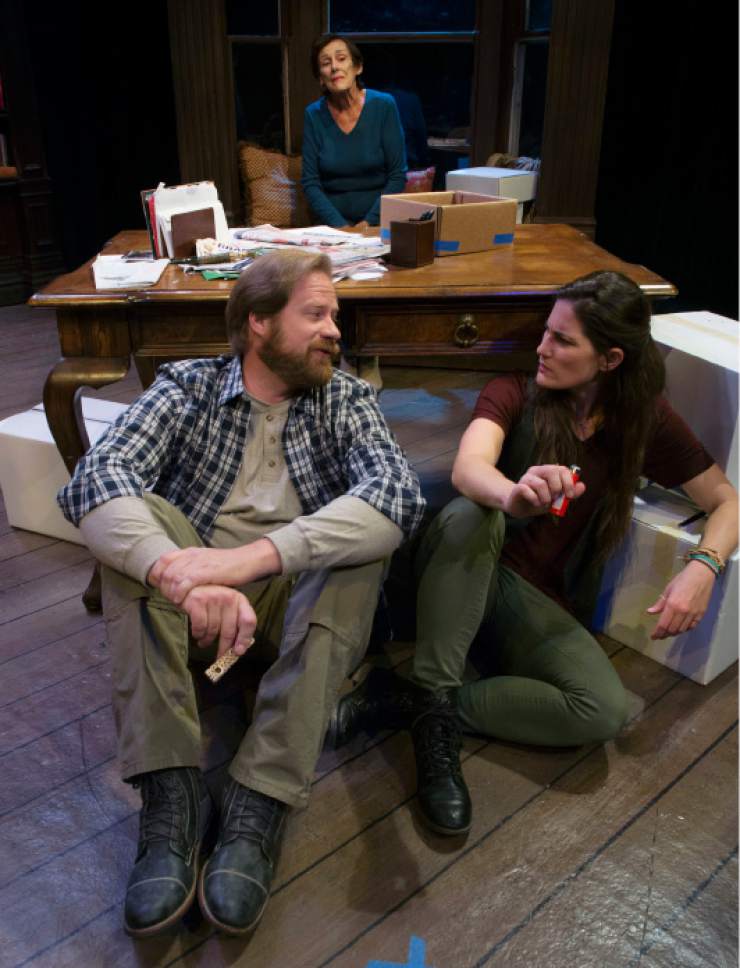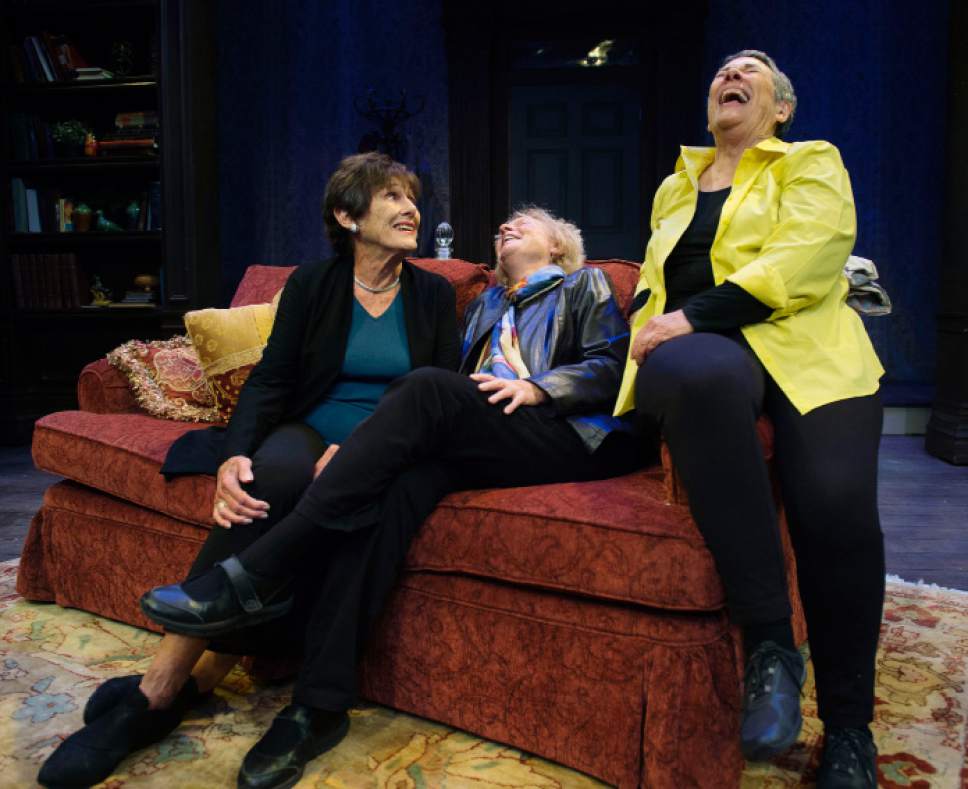This is an archived article that was published on sltrib.com in 2016, and information in the article may be outdated. It is provided only for personal research purposes and may not be reprinted.
It's the fiction that makes nationally renowned Utah playwright Julie Jensen's new play, "Winter," so interesting. Of course, the script's drawn-from-life reality is fascinating, too.
"Winter" is a homegrown story about what happens to a distinguished married couple, Annis (Anne Cullimore Decker) and Robeck (Bob Nelson), after Annis begins to experience dementia but her husband isn't ready to follow through on their suicide pact. The couple's sons and granddaughter all have different ideas about Annis' choices.
That plot outline might sound dark, but Jensen's illuminating and powerful script finds the humor in the universal questions posed in this small domestic tragedy. "Winter" opens Wednesday, Oct. 12, in a world-premiere production at Salt Lake Acting Company. The show was selected as part of the National New Play Network's rolling world premiere program, which means it will also be produced this season at Berkeley's Central Works and Chicago's Rivendell Theatre Ensemble.
"Winter" was sparked by "Robeck," a fictional short story written by University of Utah philosophy professor and bioethicist Margaret Pabst Battin some 40 years ago, "when I was a young person," Battin says now, at age 75. But the story wasn't published until 2005 as part of her book "Ending Life: Ethics and the Way We Die."
Battin brought the story to the attention of her book club colleague Decker, who introduced it to Jensen. As Jensen was writing what became "Winter," the trio met regularly to talk about issues that accompany aging. "Julie's sorting things out, listening, listening," Decker says. "All of a sudden you see a line in the play and you think: 'Oh, I know where that came from.' "
For hometown audiences, the cachet of the powerhouse force of Jensen, Decker and Battin — Salt Lake City grandes dames, as SLAC executive artistic director Cynthia Fleming labels them — should draw packed houses, as at an early reading of the play last February. At the talkback, "they weren't talking about the play, they were talking about themselves" and their loved ones and dying, Jensen says. It was gratifying to hear such a visceral reaction to the subject.
Each of the trio has her own experience with the play's thematic tapestry. Jensen, 74, drew upon watching her mother's descent into Alzheimer's in crafting her eyes-wide-open characters. As her mother was dying, the writer promised herself she would continue to think about the question of dying.
A character in the play used to say: "We refuse to believe we are getting old. We're putting it off," Jensen recalls. "It's a way of saying death doesn't touch me, illness doesn't touch me, I'm unique. When in fact, of course, we're all going to die."
The pressing societal issue of allowing death with dignity should be considered more than just "Winter's" centrifugal force. "It really is the subject of our time," Jensen argues. "I think if we don't get this solved, somehow, we'll go broke."
For Decker, who has just turned 81, creating the character of Annis is her way of directly tackling the future. She's using the expansive role to exercise her mind, banking on memorization to stave off the Alzheimer's that she has watched overcome her older sisters at ages 92 and 94.
"This keeps my brain clicking," says Decker, who was a beloved theater professor at the U. "I love the creative process, it's my favorite part of theater. So to be there at the very beginning is really a treat for me."
Anne Decker goes away in rehearsals and becomes Annis, Fleming says. Battin adds: "To watch Anne bring this to life is really extraordinary."
Decker loves how her character explains what it feels like to be old. "At moments, of course, I feel young again. Laughing, waiting for the world to open so I can step in. But then it closes, because I'm old and I do not belong. I am old. I belong over there. Separate and apart."
For Battin, no matter how the characters and story have been transformed, Jensen's play continues the conversation she's been having throughout her professional life. She began considering the questions of assisted suicide when her mother was terminally ill in her early 50s."Why is it so hard to die?" Battin's mother asked her then-21-year-old daughter.
For the daughter turned philosopher, questions about the quality of life took on even more personal resonance after a 2008 bike accident left her husband, Brooke Hopkins, paralyzed from the neck down.
The couple's choices about sustaining Hopkins' life over the next five years were closely chronicled, ranging from The Salt Lake Tribune's Peggy Fletcher Stack and Leah Hogsten to the New York Times Magazine's Robin Marantz Henig.
"Suddenly, like the characters in her short story, Battin came face to face with how complicated living and dying can be, much more complicated than even a philosopher can imagine," wrote Elaine Jarvik in a profile published in the U.'s Continuum magazine last spring.
For Battin, Jensen's stage adaptation is just another chance to continue to ask questions about death and dying. In academia, you don't always get to hear the feedback, but in the collaborative process of making theater, she's says, it feels more like thinking through something together.
What it all comes down to in "Winter" is that question: Just why is it so hard to choose to die?
facebook.com/ellen.weist —
The 'Winter' of all of our souls
Salt Lake Acting Company resident playwright Julie Jensen's new play is directed by Tracy Callahan and features Anne Cullimore Decker and Bob Nelson.
When • Previews Wednesday and Thursday; opens Friday and continues through Nov. 13; Wednesday-Saturday, 7:30 p.m., also 1 and 6 p.m. Sunday; Saturday matinee Nov. 5 and 12 at 2 p.m.
Where • Salt Lake Acting Company, 168 W. 500 North, Salt Lake City
Tickets • $15-$42 (discounts for student, seniors, 30 and younger, and groups); 801-363-7522 or saltlakeactingcompany.org


